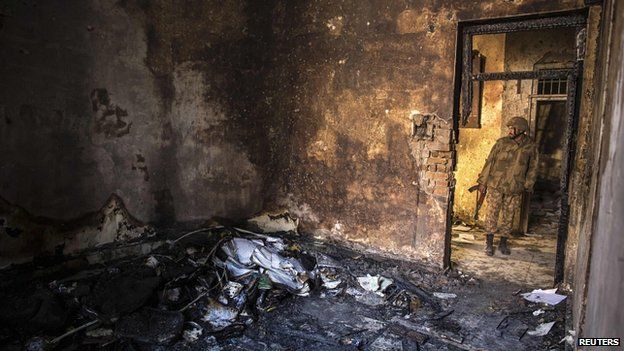How many attacks on schools around the world?
- Published

The murderous attack on a school in Peshawar has appalled people around the world, but perhaps even more dreadful is that this is far from an isolated incident.
The deliberate targeting of places of education has become a global blight.
An international study published earlier this year showed that between 2009 and 2013 there were 9,600 attacks in 70 countries.
The report, researched by a coalition of United Nations agencies, human rights groups and aid organisations, showed that these attacks on pupils, teachers and buildings were not accidental or random incidents.
"They are bombed, burned, shot, threatened and abducted precisely because of their connection to education," said Diya Nijhowne, director of the Global Coalition to Protect Education from Attack.
The Peshawar attack is the latest in a grim catalogue of murders and abductions of teachers and students and the blowing up or burning down of school buildings.
The locations of the attack range from Colombia to Myanmar to Somalia. Pakistan, the scene of the latest carnage, has seen the greatest number.
Symbolic targets
The type of attacks range from teachers being shot dead in Nigeria to violence from criminal and paramilitary gangs in Colombia.
The victims can be children caught up in sectarian violence or teachers who have become symbolic targets as community leaders.
The reason for targeting pupils, students and teachers has its own ghastly logic.
It is one of the most brutal ways of intimidating and undermining a community. Apart from terrorising and traumatising people, burning down schools is a weapon of economic war, destroying the chance of self-improvement.
Attacking schools and places of learning is a way of attacking someone else's culture - or else enforcing a religious or ideological campaign.
In Nigeria, radical Islamic group Boko Haram, abducted hundreds of schoolgirls in Chibok in April. Despite months of international protests highlighting their plight, the girls have still not been returned.
The extremist group, which opposes girls' right to education, has staged violent attacks against schools and colleges, including killing dozens of children in attacks on boarding schools.
The Taliban, blamed for the attack in Peshawar, pursued a relentless campaign against girls' education when they were in power in Afghanistan.
Lack of education
Girls wanting to get an education had to attend secret schools, hidden away from the authorities, and taught by teachers who risked their lives.
But it would also be wrong to see this as a problem of the Muslim world. Not least because the painstaking task of recording attacks on education and highlighting the scale of the disaster has been funded by a Muslim country, Qatar.
The Gulf state has also been at the forefront of urging the United Nations to give protected status to schools and places of education.
There is a wider context to this violence against schools. It often corresponds with countries, particularly in sub-Saharan Africa, where there are already millions of children without any access to education. And it continues a cycle of lack of education, poverty and violence.
For almost 25 years, the international community has been failing to keep a promise to provide a primary school education for all children - and the current target of 2015 will almost certainly be missed and then shunted back to 2030.
Among the biggest barriers to delivering even a meagre ration of education has been conflict and violence. The burning of books, the lighting of candles and the funerals continue.